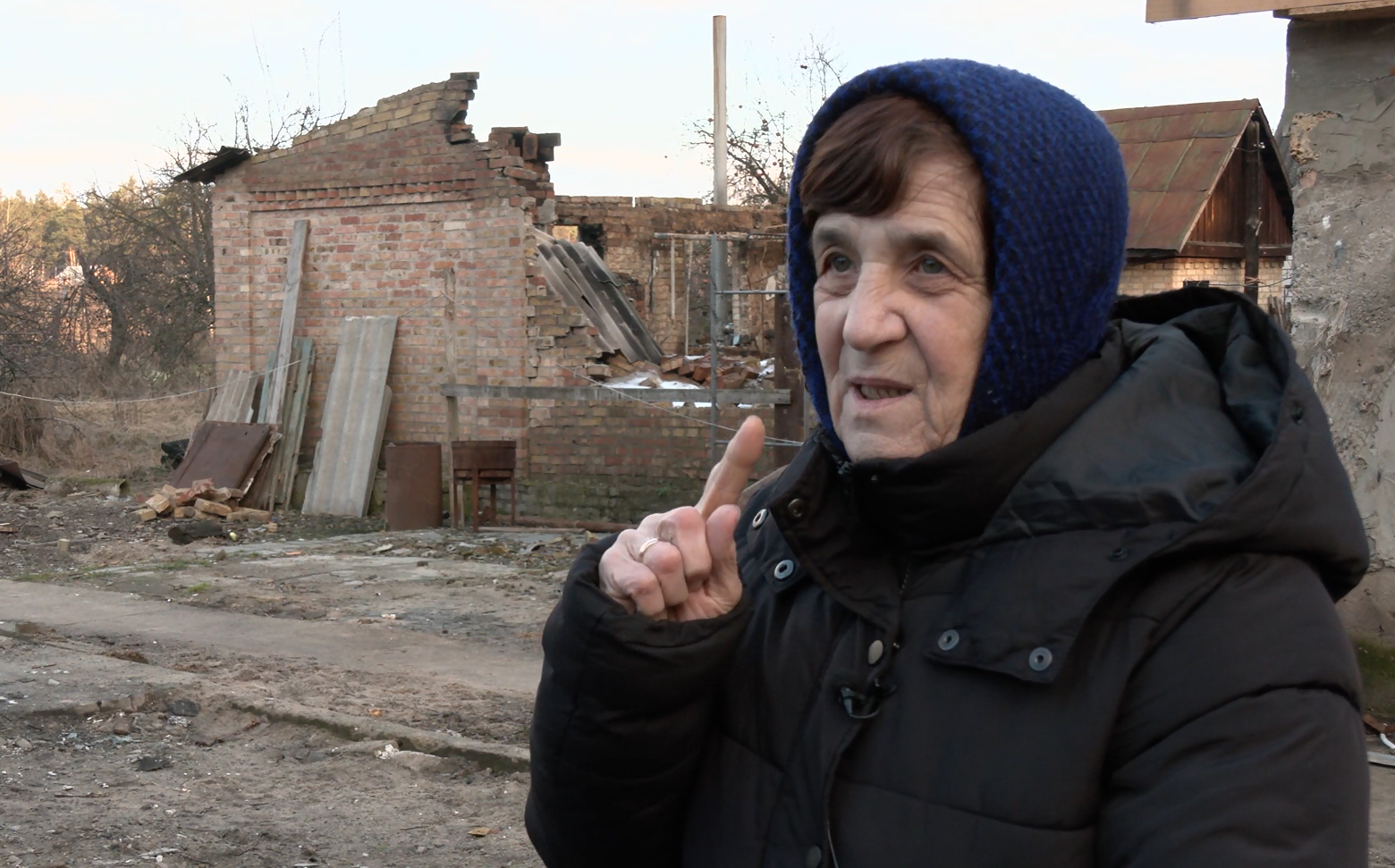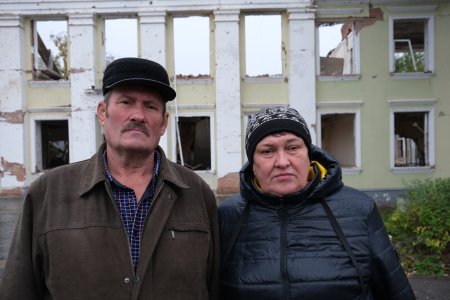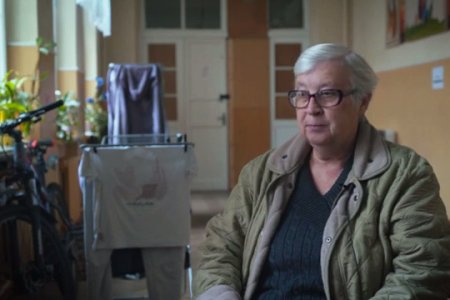Antonina Soloviova. I’ve lived here since 1977 and gave birth to four children. My husband is local, but I am not. I think it’s clear where I came from, but my Motherland is here. My husband served in the military in Moscow, and I worked there. In 1977 he brought me here. Since then, we have been living here. I’ve been retired for a long time, but I’ve been working. I was fired when the war started. I have been retired for eight months, and my pension is small because I worked in the public sector in a sanatorium. And state employees don’t get much.
— Did you live with your children before the war?
— I lived in this house with my two daughters and my son. But this is also a nephew’s house, and not just ours.
— Did you expect a full-scale invasion?
— No, not to such an extent, although we were already hated. There were conversations. I have two sisters there. When the war started, I called them, but in vain. The answer was: “It can’t be! It is the way they said on TV.” They are like zombies. We collected documents, passports, and something for the children, and my son-in-law took us from here by the 13th line to Puscha-Vodytsa. There we lived. There were a lot of us: guys and girls. At first, we slept on the floor, and then they gave us beds.
We heard the air raid alerts. We heard the bombing and all these explosions. But we tried not to panic because we had children with us.
The youngest is nine years old, then twelve, fourteen, and nineteen. We had neighbors with us whose house was also bombed, a girl of eleven and a boy with diabetes. Our godmother was with a six-month-old child and another boy of eleven. Then our group was taken to the Ivano-Frankivsk region. We drove for seventeen hours. We were not afraid for ourselves, only for the children, and we tried not to show our excitement so they weren’t scared.
Still, I think they understood everything, despite their age. Therefore, we tried to reassure them. My children found out earlier that the house had been bombed but told me a week later. They brought the news with Corvalol. I cried, of course, a lot. Do you know what it’s like to lose everything these days? It is scary. I worry not so much for myself but for my grandchildren. Where should they go?
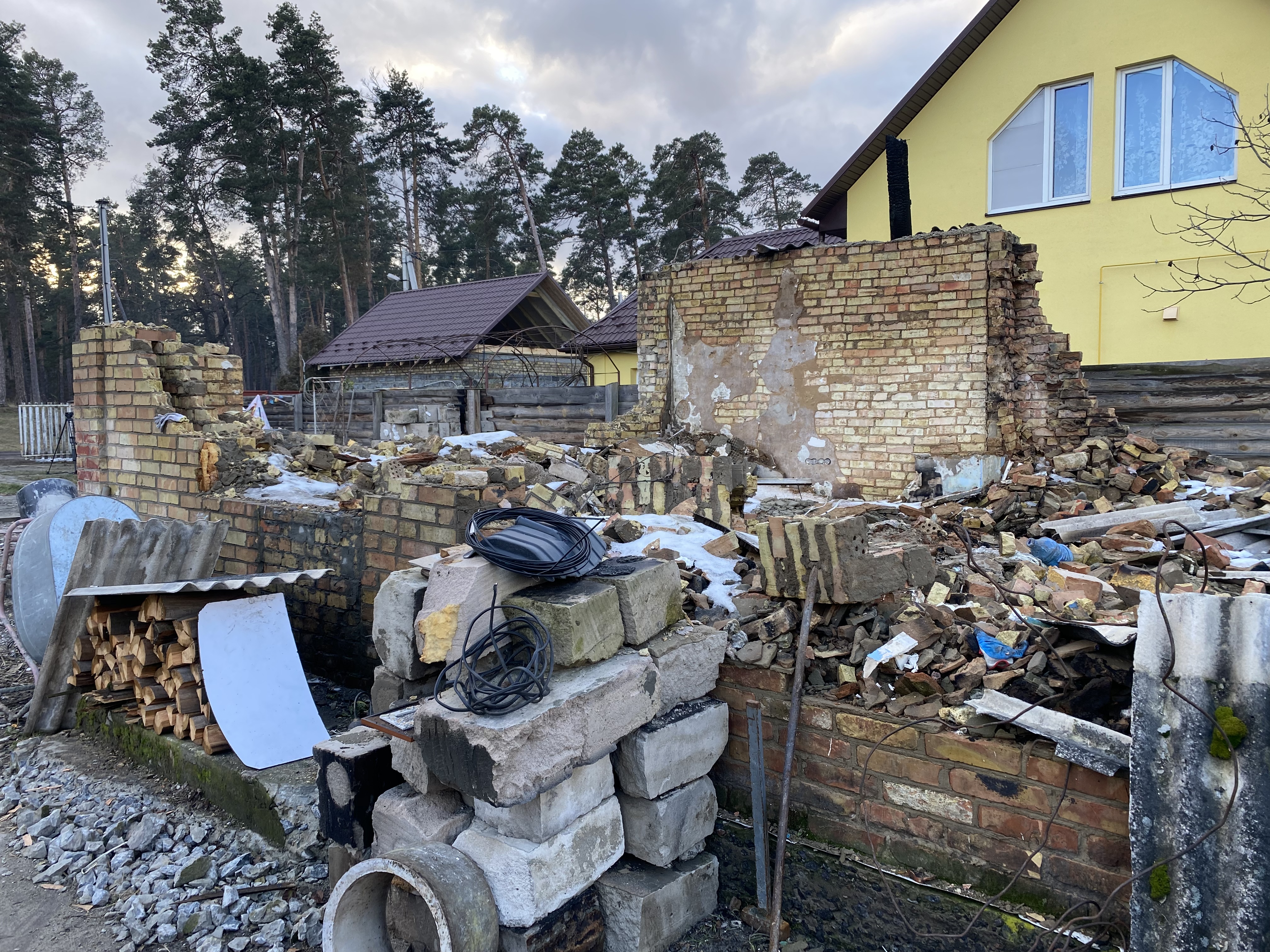
— What did you do on 24 February?
— On 24 February, a partner from the store called at six in the morning. He said: “Aunt Tonya, the war has begun.” I went to the store and saw Russian helicopters flying over me. We didn’t even know who they were. Good thing I didn’t wave to them. Who knows what they might have thrown at me? There were so many that I didn’t even count. They just flew to bomb Hostomel. Then I looked back and saw planes flying from the other side.
I didn’t have time to reach the house — the bombing and explosions began. At night we all gathered in one room. We sat there because it was scary to fall asleep.
I don’t even know how to tell you about it. It’s impossible to put into words. On the 25th, despite the bombing, we stayed one more night and left on the 26th.
— When did you return?
— We immediately tried to return but were not allowed. Finally, we were allowed to return at approximately the end of May. We lived with our daughter comfortably but wanted to go home very much. It is better to be home, but when I saw the destroyed house, I wanted to howl and scream like a wolf. It’s one thing to see the destruction in the photo and another thing to go inside and see for yourself. It is entirely different. We began cleaning everything up so the children could build a house.
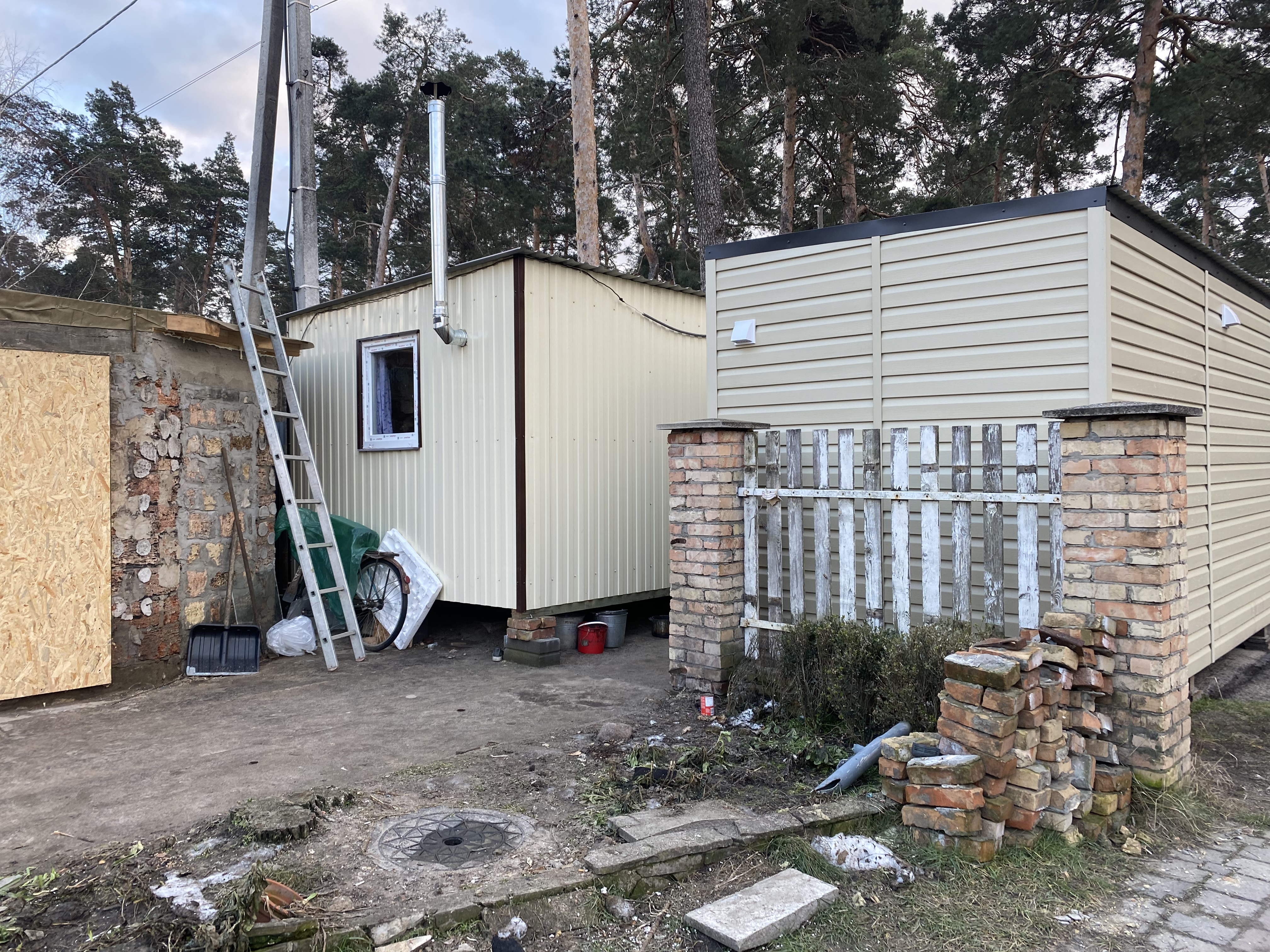
They say there were two hits and phosphorus bombs. In the first photos, the walls were still standing, but when we arrived, they were gone. Everything was destroyed as if someone had scattered the bricks. My daughter built a wooden house; they have nothing at all. Only the refrigerator, washing machine, and TV remained. And from the house, only a frame left.
— What other crimes did the Russian military commit?
— A guy (Slava) lived nearby. The Russians shot him. Another person is missing: Sergey, my son’s classmate. There was a man, and he was no more. He was 42, like my son. Then another one (Yura) was shot. They wanted to leave by car. His wife pretended to be dead and survived, but he was shot dead — point blank. The second person was wounded, but he survived. There were three of them in the car. So, they wanted to run away, but it didn’t work out. The wounded man told me this later. An elderly couple lived next to us. He was killed, and the woman was buried in the house when the bomb hit.
— How many houses in Moshchun were destroyed?
— 80% for sure. Less where we live, but have you been on the other side? There’s a lot more there. It seems to me about 80% were destroyed. Who knows when we will rebuild? I have no idea. They say the German company promised help.
— What are you planning to do next?
— Plans? I want the kids to do well. We wait, we hope. They have nowhere to live. The daughter rents a room which costs six thousand for the family. Where to take them? They were promised something, but so far, nothing has been given. Thank God we got this house. We are waiting for the children to get something until they rebuild the house as promised. But until the war is over, I think nothing will be built. We understand this. Grandpa and I don’t need much anymore. The main thing is the children.
— Has your attitude towards the Russians changed?
— What can I say? Only one thing: they are not our brothers! Although I have two siblings there. But they still don’t believe me. What can I tell them? They say, “What can we do?” Indeed, if you remain silent, then nothing will be done. Lord, how many of them have already died senselessly. I have nothing good to say to them. Let them endure. Soon everyone will be killed, and let them die! They should not have come to us. We didn’t go to them. They have to do something if they want their children to be alive! You can’t be silent. He is sick (Putin). That’s the whole story.
